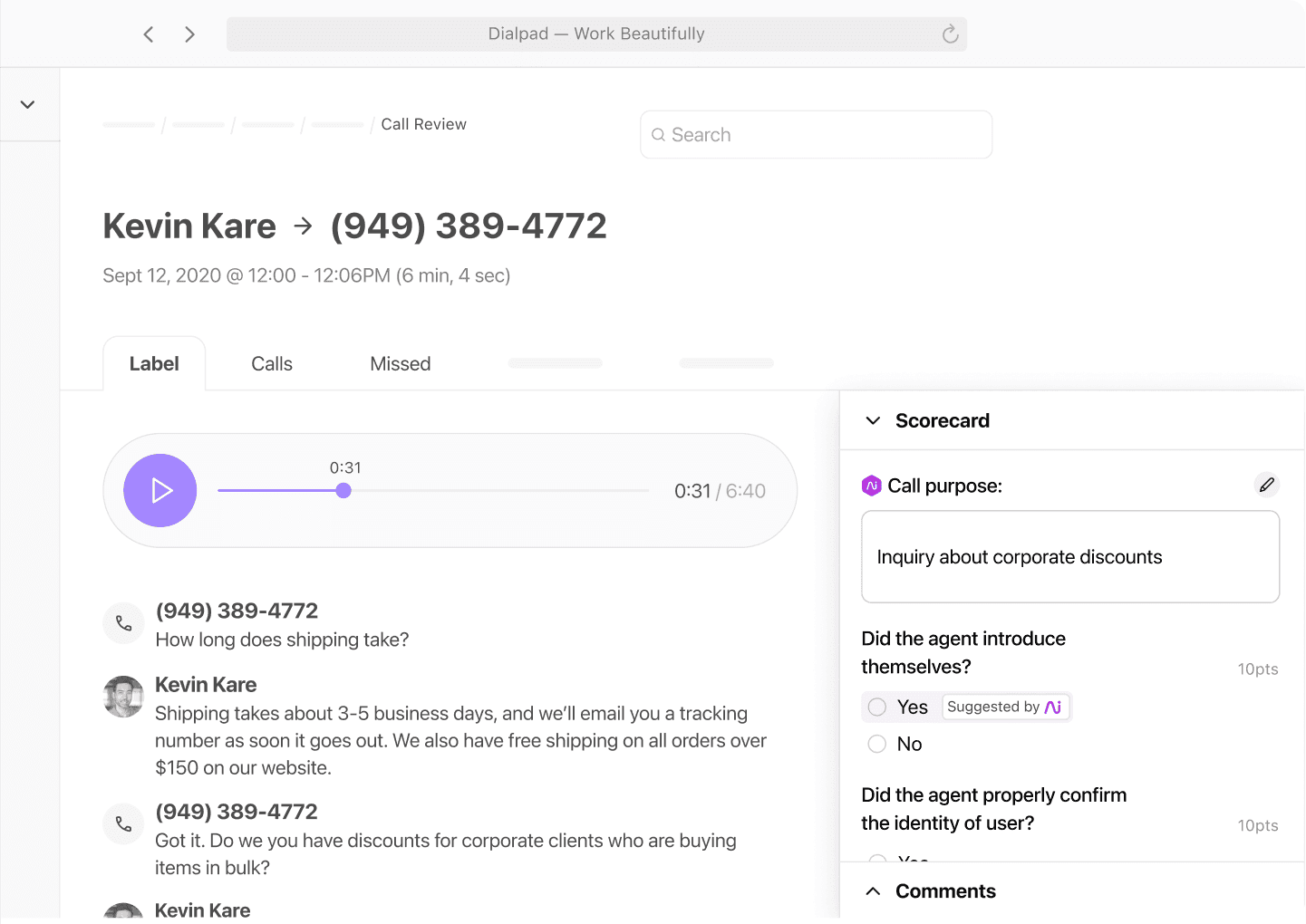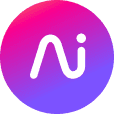
Tags
Share
AI is set to fundamentally reshape the HR landscape. A recent AI study revealed that 72% of CxOs are gearing up to reskill their workforce for an AI-driven future. HR leaders must get a grip on leveraging AI to streamline workflows like recruitment and onboarding while enhancing training and employee development. But, it's also crucial to recognize AI's limitations. Organizations that resist this change risk being left in the dust.
In this article, we’ve tapped into the expertise of several HR experts and thought leaders to get their take on AI’s transformative impact on HR. We'll dive into their predictions for AI’s future role and showcase how it's already boosting efficiency in HR teams. While AI holds great promise, it also brings significant challenges and ethical questions. We’ll tackle these head-on, exploring the complexities of AI ethics and governance in the HR sphere.
Recruiting and Hiring Transformed
AI is poised to dramatically enhance recruiting efficiency and effectiveness, especially when it comes to candidate matching. This goes beyond just speed to enabling a level of precision in finding the ideal fit that would be impossible through traditional methods. Here’s what Alari Aho, CEO and Founder of Toggl, with 15 years experience in HR, has to say about AI’s impact:
Alari Aho, CEO and Founder of Toggl
"I see AI totally changing the game in recruiting. It's like, imagine having this super tool that can go through tons and tons of data to find the perfect candidate. This isn't just faster than the old ways but way more precise. So, we're talking about making the whole recruitment process super efficient and really cutting down on the chances of hiring someone who doesn't fit. It's a game-changer because it means companies can save a lot of time and resources."
While some recruiting teams are already implementing AI, from resume screening to candidate outreach, the real transformation will come with mass adoption. Jared Brown, Co-founder and CEO of Hubstaff, with expertise in remote work and workforce management says that:
"Major shifts are going to come down to how long it takes for mass adoption, but AI is already revolutionizing recruiting and hiring in small pockets. For example, we're hearing of recruiters using AI to automate the screening of resumes and generating candidate outreach emails (and recruiting platforms were some of the first to implement AI to retrieve and organize data years ago, as well as implement generative AI in the last year).
Before long, these tools will be able to do things like better identify top candidates through predictive analytics and enhance job matching based on skills and cultural fit. Still, and especially in hiring, there's a cautionary note on ensuring AI algorithms are devoid of built-in biases to prevent perpetuating discrimination in hiring practices. Human oversight will be as critical as ever."
As humans are still a crucial part of the process, it’s important to note that AI will also help streamline many time-consuming HR tasks, like research and knowledge management. As Jess Lantis, VP of People Ops at GetGuru with over 15 years of experience in SaaS and other industries, says, this frees up HR to focus more on high-value activities:

Personalized Employee Experiences
Beyond hiring, AI opens up exciting possibilities for personalizing the onboarding experience based on an individual's unique profile - their learning style, role, performance data and more. Rather than a generic process, AI can enable tailored journeys that accelerate ramp up time and forge stronger connections with the company from day one. As Alari Aho, CEO of Toggl, puts it:
"But it's not just about hiring. AI's going to make a big difference in how new folks get started at a company too. Think personalized onboarding. By digging into data on how someone learns best, what their job is all about, and feedback on their performance, AI can tailor the whole onboarding process. So, it's not just some one-size-fits-all thing. It's about giving each new hire a custom experience that helps them get up to speed faster and feel more connected to the company right from the start. This kind of personal touch not only makes employees happier but also sets them up for success in the long run."
onboarding experience tip
To enhance the onboarding experience further and reduce ramp up time, sales and customer service teams can use features like AI agent assist and real-time assist cards when using Dialpad to communicate with their clients and potential customers.
But that’s just the tip of the iceberg. Jarir (Jay) Mallah, HR Manager at Ling who manages 47 employees across 12 nationalities, shares some other creative ways to use AI:
"During onboarding, I've used AI to greatly reduce unnecessary face to face meetings. Tools I've created are onboarding presentations, knowledge quizzes and surveys, and using ChatGPT, we created a company chatbot that can answer any question as long as it's been documented within our policies and documents. The result is a self-learning environment which has improved autonomy and given Human Resources the opportunity of freed up time to manage other important tasks."
So how will recruiting technology be impacted by AI in the near future, and what areas can we expect to see significant changes? Here’s what Jared Brown of Hubstaff predicts:
"For HR-driven areas like performance management, AI in the near term will likely result in a shift toward a dynamic, real-time feedback ecosystem — meaning (at the bare minimum) tools that monitor and support employee productivity will talk to tools that do things like set OKRs and track task completions, resulting in a system that can essentially play the role of a manager to keep an eye on productivity and support employees when they hit blockers.
Even further out, I could see platforms combining elements of people analytics and well-being and benefits solutions, where AI can intake a holistic dataset for each employee to consistently nudge them to take actions that will improve productivity, such as scheduling time off, doctor appointments, or suggesting ways they can increase flow time."
Enhancing Training and Skill Development
So far, we’ve mainly focused on recruiting and onboarding. There’s a vast amount of potential for AI to help in other areas within HR, like forecasting attrition and evaluating performance. Here’s what what Daniel Space, Director HRBP/R at Spotify and 20 years of HR experience, has to say about how they’re currently using AI:

This has allowed us, with a certain level of confidence, to better manage HR processes such as annual performance review and compensation cycle where we put more financial reward incentives into retention for key employees by understanding around what time frame we start to see a drop of engagement that may lead to looking for a new role.
This has also helped us tremendously in working with Recruitment to understand where we will see a potential spike of exits that we can better prepare for. We are building models that help identify, predict and even help create training needs, assessments and even some of the content, especially in ways that allow us to take stock and advantage of growing trends, ie we were able to use AI to discover that training done on how GenZ differs from Millenials would be really helpful and AI helped us craft some of the structure to a training like this."
Other ways that AI can postively impact the workforce is through identifying skill gaps and areas for improvement. This enables highly targeted coaching and training, empowering employees to continuously refine their abilities. Here’s the impact that Shane Freeburg, SVP of Global Support Services at Dialpad with over 20 years leading global teams, had to say:
"Before Dialpad, teams that I've worked with in the past would train agents by manually reviewing a small sample of customer interactions, which was a time-consuming and often subjective process.
After joining Dialpad and using features like Ai Scorecards, I've seen a noticeable improvement in our ability to provide targeted coaching and training to address our team's performance. Dialpad Ai also helps analyze every customer interaction, which helps us identify specific areas for improvement.

This allows us to conduct thorough reviews and facilitate focused training sessions, so that new hires and seasoned team members can continuously refine their skills. This allows us to drive incremental improvements in our customer experience which are validated by increases in our Ai CSAT scores and customer feedback."
Diversity, Equity and AI Ethics
While AI holds immense potential to enhance diversity and inclusion efforts in HR, it is crucial to approach it with a critical lens. Here’s what Ashwin Ramesh, Founder of Synup, an entrepreneur with business and marketing expertise shares his team’s workaround to this challenge:
"Being actively participating in the HR policies of my organization, I have discovered that the evolving landscape of artificial intelligence in HR presents both opportunities and challenges. One key aspect is the possibility of AI to enhance diversity and inclusion efforts within recruitment and hiring processes.
One unconventional yet impactful strategy for nurturing diversity and inclusion was implemented by introducing the Reverse Mentorship program. Pairing emerging leaders from underrepresented groups with more seasoned executives created a two-way learning street. One notable success story emerged when a junior team member, through this initiative, collaborated with a senior executive to reshape the company's approach to community outreach. The fresh perspective from the junior members brought innovative solutions and created a mentorship bond that transcended traditional hierarchies.
However, a concern arises regarding the need for transparent AI algorithms to ensure fairness and mitigate the risk of perpetuating existing biases in decision-making. Embracing AI with a critical lens and a commitment to ethical implementation will be crucial in leveraging its transformative potential while upholding principles of fairness and equity in HR practices."
The industry is in fact working to explore ways to use AI for uncovering and correcting biases that disadvantage underrepresented groups. However, this may necessitate algorithmic transparency, allowing detection of bias in training data and decision-making processes. Without this, AI risks amplifying harm, as Robert Kaskel, Chief People Officer at Checkr and HR veteran with over 23 years of experience mentions:
Robert Kaskel, Chief People Officer at Checkr
"AI will make it easier for HR leaders to create value-added experiences for employees in every industry. It won't take away from our human connection but will replace and largely automate administrative tasks that get in the way of our ability to serve our people.
When used correctly, it can also help us uncover and check biases that have long harmed underrepresented candidates and teammates. For that to happen without incurring even more potential harm from unchecked biases, we need AI with 100% transparent processes so we can check the data systems are trained on for bias and trace how these technologies get from point A to conclusion B."
Operational Efficiencies and Cost Savings
Since we’ve covered the benefits and savings in terms of recruiting, hiring, and onboarding, we also wanted to explore how AI may be able to streamline one of HR's most arduous tasks - budgeting. Here’s what Jarir (Jay) Mallah, of Ling added:
"Budgeting is one of the most cumbersome and challenging parts of an HR department. Eventually, we plan to implement AI tools to identify and categorize purchases and expenses. It can then be used to analyze purchase patterns or anomalies throughout the year and within departments. Using the data, we would also be able to make projections for coming quarters or plan ahead for next year's budget."
Embracing the Future of HR with AI
AI will profoundly impact HR workflows and the employee experience in countless ways. We hope that these real-life use cases can help inspire your teams to make the most of its potential. But as we embrace this exciting new frontier, it’s important that we recognize and prioritize responsible AI design and deployment to mitigate risks and navigate ethical pitfalls. HR leaders must proactively understand and develop AI’s capabilities to harness its transformative potential and use it strategically. The future of HR is undoubtedly intertwined with AI—so let's get started on shaping the future workforce, one innovation at a time!









